
The director of the University of Southern Florida’s Parkinson's and Movement Disorders Center spoke to the current Parkinson disease therapy landscape and what he learned from a recent survey of patients and caretakers.

The director of the University of Southern Florida’s Parkinson's and Movement Disorders Center spoke to the current Parkinson disease therapy landscape and what he learned from a recent survey of patients and caretakers.

The product includes cannabidiol that is encased in a gelatin bead inside a gastro-resistant capsule to help promote optimal absorption and reduce adverse events associated with other oral CBD formulations.
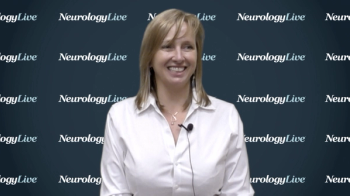
The regional lead in clinical and translational neuroscience at Kaiser Permanente spoke about the findings of a recent study of pregnancy in women with MS which showed no increased risk of relapse during the postpartum period.

Using principal component analysis, the findings suggest that CAG repeat length strongly predict the rate of cognitive-motor decline in patients with Huntington disease, with higher CAG resulting in earlier and faster decline.
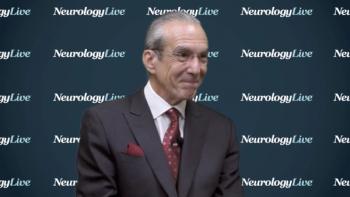
The director emeritus of the Cleveland Clinic Lou Ruvo Center for Brain Health and vice chair of the department of brain health at the University of Nevada Las Vegas spoke about therapies under investigation for the treatment of Alzheimer disease.

Although the biomarker was associated with disease activity, its prognostic value on the individual patient level is still limited per these 10-year data of more than 600 patients with multiple sclerosis.

The director of the University of Southern Florida’s Parkinson's and Movement Disorders Center shared insight into the current focus on the nonmotor aspects of Parkinson care and the findings of a survey of patients and caregivers.

The neurohospitalist and assistant professor of neurology at the University of California San Francisco spoke about how caregiver depression is an important risk factor associated with increased healthcare use among individuals with dementia.
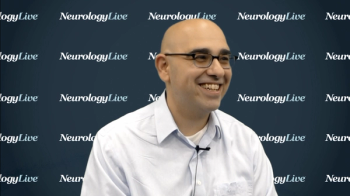
The assistant professor and cognitive neurologist at the University of Pennsylvania Frontotemporal Degeneration Center will share additional insights on Alzheimer disease at the upcoming International Congress on the Future of Neurology, taking place September 27-28, 2019 in New York City.

The early career fellow in the Center for Health Equity at the Melbourne School of Population and Global Health at the University of Melbourne offered insight into the critical need for research and efforts to increase smoking cessation in those with multiple sclerosis.

The neurologist at Cedars-Sinai Medical Center shared insight into the PKG’s use and what the wearable monitoring device can provide to physicians who treat patients with Parkinson disease.

Neurology News Network for the week ending August 10, 2019.

Initial data from a feasibility study conducted with Apple devices and digital apps has shown the potential for these to be able to differentiate people with mild cognitive impairment and mild Alzheimer disease dementia.

Exposure to the care of either a neurologist or comprehensive epilepsy program epileptologist resulted in a significantly lower rate of premature mortality than that of those who were not, based on findings from a cohort of more than 20,000 cases.
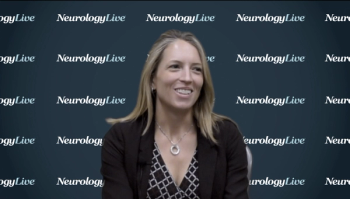
The associate professor of neurology and medical director of the epilepsy monitoring unit and Penn epilepsy surgical program at the University of Pennsylvania discussed the findings of a single-center review of off-label clobazam use for patients with drug-refractory epilepsy.
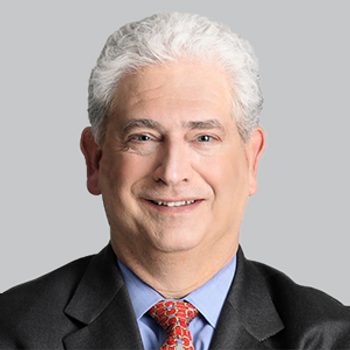
The new drug application for Libervant is expected to be completed in the fourth quarter of 2019, which if approved, would offer a potentially first in class oral treatment for breakthrough or cluster seizures.
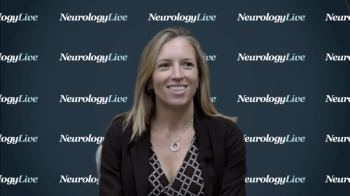
The associate professor of neurology and medical director of the epilepsy monitoring unit and Penn epilepsy surgical program at the University of Pennsylvania shared insight into the prioritization of women with epilepsy who may intend to get pregnant.

New study findings confirm that idiopathic rapid‐eye‐movements sleep behavior disorder and RBD secondary to narcolepsy type 1 can be identified via video‐polysomnography and skin biopsy for phosphorylated α‐synuclein deposits.

The Rare Disease Cures Accelerator-Data and Analytics Platform, aimed at accelerating the development of new therapies, will launch at a joint meeting between the Critical Path Institute and the National Organization for Rare Disorders on Tuesday, September 17 in Bethesda, Maryland.
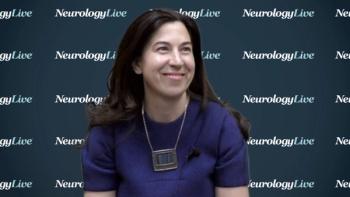
The attending neurologist at the Montefiore Headache Center and assistant professor of neurology at the Albert Einstein College of Medicine spoke about preventive treament for perimenstrual-related migraine.

Six-month results show significant improvements in motor symptoms, mentation, behavior, and mood, with a prolonged residual benefit.
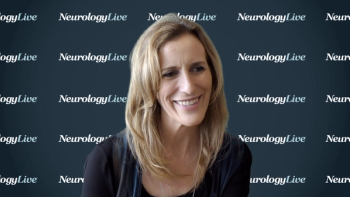
The clinical neuropsychologist and head of the School of Psychological Sciences at the University of Melbourne discussed the results of a study she and colleagues conducted in which they mapped the long-term social outcomes of patient post-epilepsy surgery.

The director of multiple sclerosis neuropsychiatry at Brigham and Women’s Hospital discussed how a collaborative approach can help to address mental health disorders in patients with multiple sclerosis.

The director of headache medicine and chief of general neurology at Yale Medicine spoke about the significance of having CGRP inhibitors in the armamentarium, and how therapies like eptinezumab can improve patients’ belief in their physician’s ability to help.

The agency said the gene therapy should remain on the market while it assesses the situation and does not impact their evaluation of data from the human clinical trials.

Subjects receiving GRF6019 maintained cognitive and functional status over a period of 6 months, and dosing was reported to be safe and well-tolerated.

Dysphagia is a common symptom and complication of neurologic disorders, yet no clear treatment protocol has been identified.
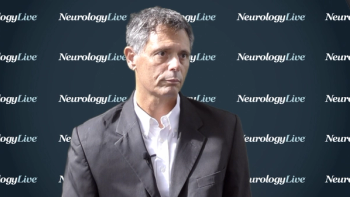
The CEO and co-founder of Theranica discussed the migraine treatment device’s mechanism of action and its successes in reducing medication overuse headache.

The professor of neurology at University Medical Center Schleswig‐Holstein, and member of the department of neurodegenerative diseases at University Hospital Tübingen shared insight into the quantitative gait characteristics measured by wearable devices which can play an important role in the identification of prodromal Parkinson disease and its progression.

The findings demonstrated that the galcanezumab group—made up of those with both chronic and episodic migraine—experienced a 4.1-day reduction in monthly migraine headache days compared to a 1.0-day reduction with placebo.